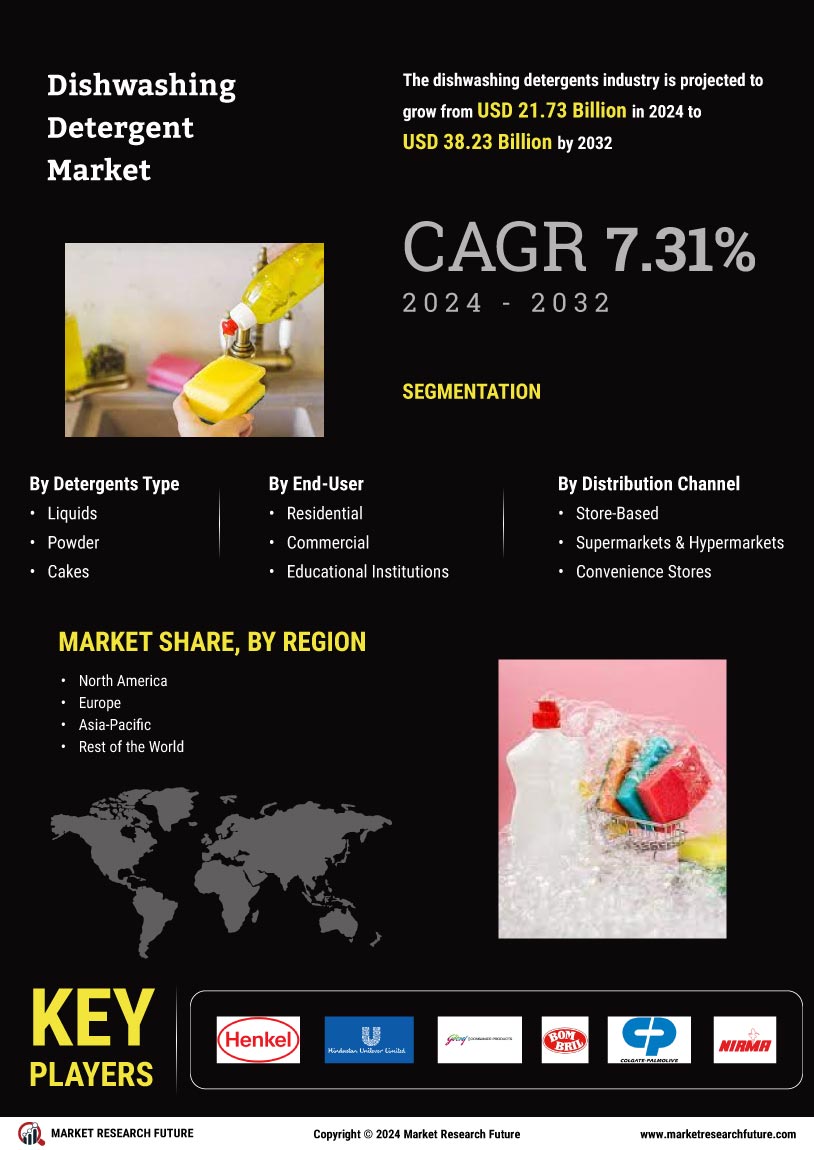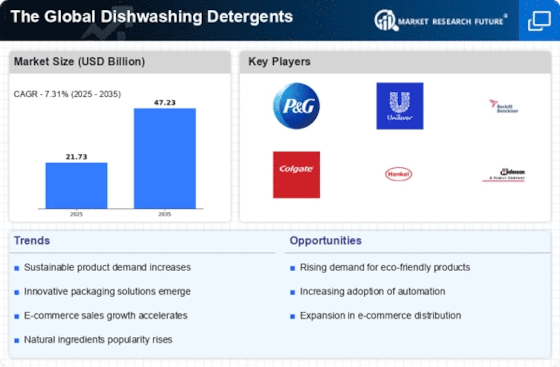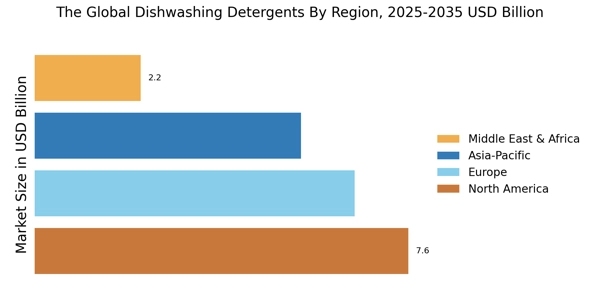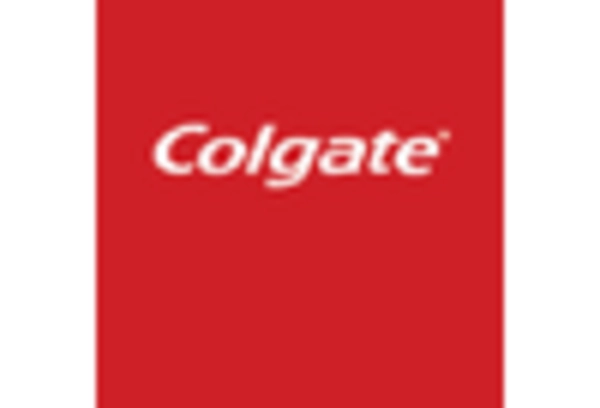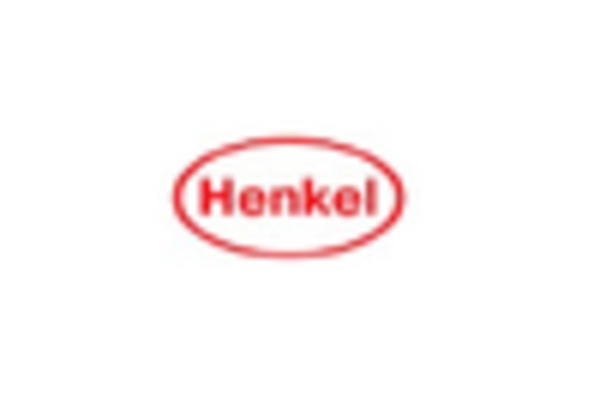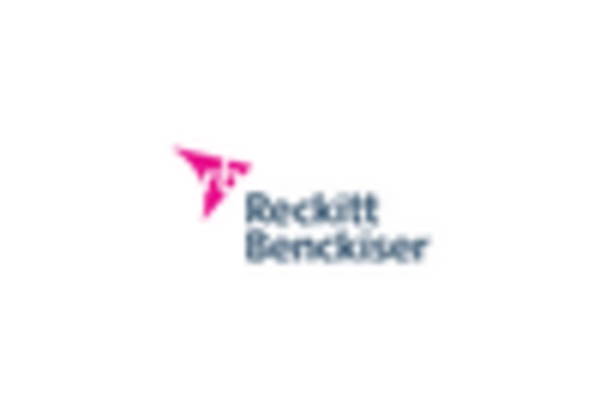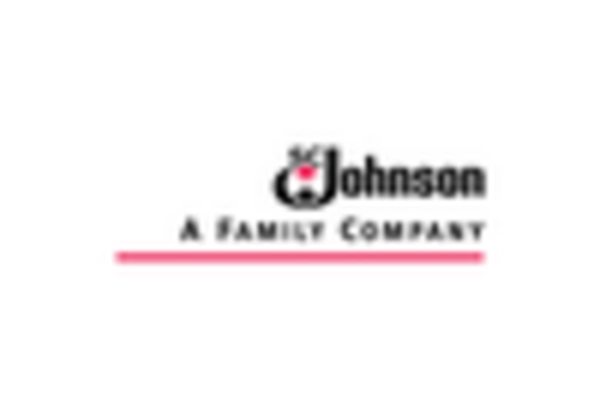E-commerce Expansion
The expansion of e-commerce platforms is significantly influencing the dishwashing detergents market. With the increasing prevalence of online shopping, consumers are more inclined to purchase household products, including dishwashing detergents, through digital channels. This trend is particularly relevant in urban areas, where convenience and accessibility are paramount. In 2025, it is estimated that online sales will account for over 30% of total sales in the industry, reflecting a shift in consumer purchasing behavior. As a result, brands are investing in their online presence and digital marketing strategies to capture this growing segment. The Global Dishwashing Detergents Industry is thus witnessing a transformation in distribution channels, with e-commerce becoming a vital component of overall sales strategies.
Rising Disposable Income
The rise in disposable income across various regions is contributing to the growth of the dishwashing detergents market. As consumers experience increased financial flexibility, they are more inclined to purchase premium and specialized products. This trend is particularly evident in emerging markets, where a growing middle class is driving demand for high-quality dishwashing solutions. In 2025, it is projected that the premium segment of the market will account for approximately 25% of total sales in the industry. This shift indicates a willingness among consumers to invest in products that offer superior performance and additional benefits. Consequently, The Global Dishwashing Detergents Industry is likely to see a diversification of product offerings to cater to this evolving consumer base.
Sustainability Initiatives
The increasing emphasis on sustainability appears to be a pivotal driver in the dishwashing detergents market. Consumers are becoming more environmentally conscious, leading to a surge in demand for eco-friendly products. The market for biodegradable and plant-based detergents is projected to grow significantly, as consumers seek alternatives that minimize environmental impact. In 2025, the market for sustainable dishwashing detergents is estimated to account for over 30% of total sales in the industry. This shift not only reflects changing consumer preferences but also compels manufacturers to innovate and reformulate their products to align with sustainability goals. As a result, The Global Dishwashing Detergents Industry is witnessing a transformation, with brands increasingly highlighting their commitment to eco-friendly practices.
Technological Advancements
Technological advancements in product formulation and manufacturing processes are likely to play a crucial role in shaping the dishwashing detergents market. Innovations such as enzyme-based detergents and concentrated formulas are gaining traction, offering enhanced cleaning efficiency and reduced environmental impact. The introduction of smart packaging solutions, which provide consumers with information on product usage and environmental benefits, is also emerging as a trend. In 2025, it is anticipated that the adoption of these technologies will contribute to a 15% increase in market growth within the industry. As consumers become more informed about product efficacy and safety, The Global Dishwashing Detergents Industry is expected to evolve, with brands investing in research and development to stay competitive.
Health and Hygiene Awareness
The heightened awareness of health and hygiene is emerging as a significant driver in the dishwashing detergents market. Consumers are increasingly prioritizing cleanliness and sanitation in their households, leading to a surge in demand for effective cleaning products. This trend is particularly pronounced in regions where food safety regulations are stringent, prompting consumers to seek out reliable dishwashing solutions. In 2025, the market for antibacterial and disinfecting dishwashing detergents is expected to grow by 20%, reflecting this heightened focus on hygiene. As a result, The Global Dishwashing Detergents Industry is adapting to these changing consumer needs, with brands emphasizing the efficacy of their products in promoting health and safety.
